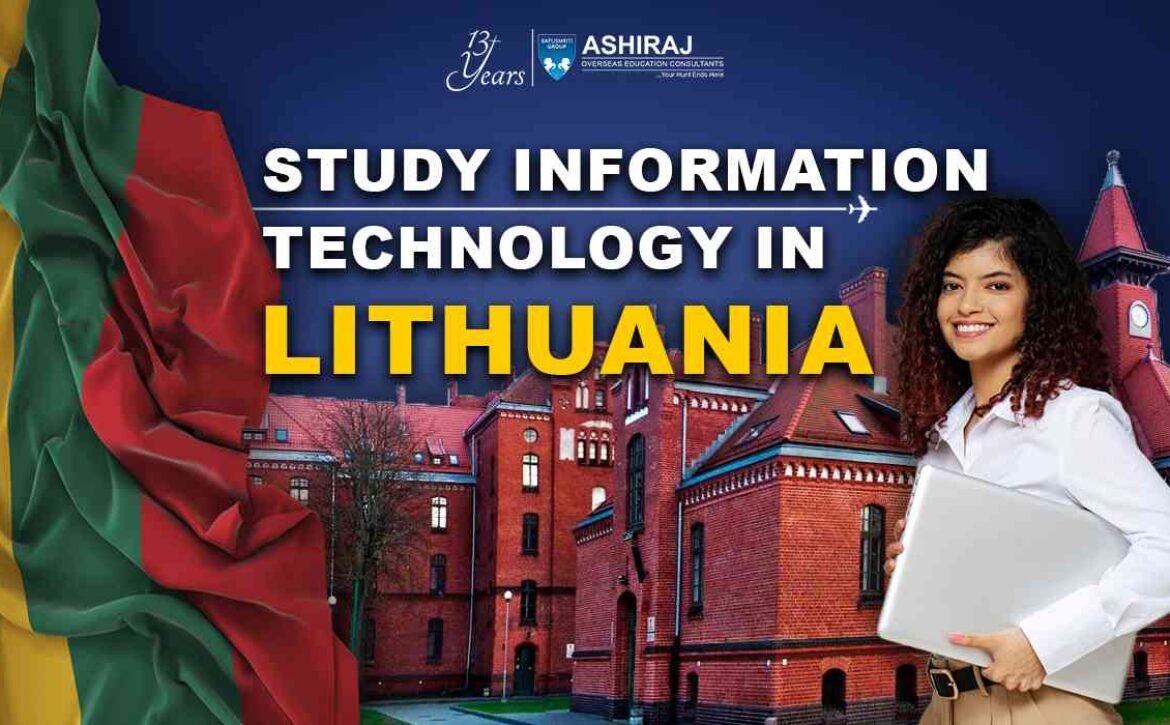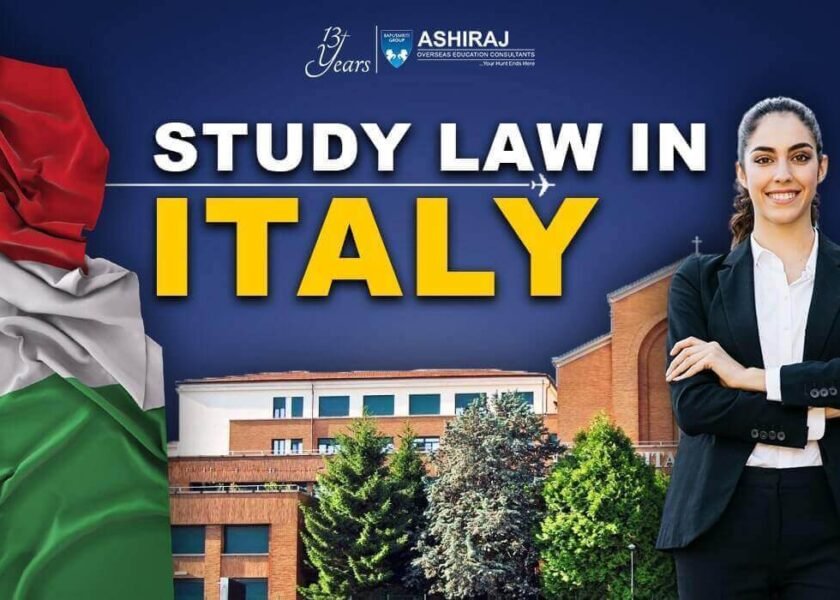
Information Technology in Lithuania
Lithuania stands at the forefront of leveraging Information Technology (IT) to bolster its economic and social landscapes. With a burgeoning IT sector, Lithuania has become a hub of innovation and technological advancement in the Baltic region. The integration of Information Technology in Lithuania has significantly transformed various sectors, including finance, healthcare, education, and governance.
Information technology in Lithuania has witnessed exponential growth, driven by a robust infrastructure, skilled workforce, and supportive government policies. The country’s strategic location, coupled with its proactive approach towards digitalization, has attracted multinational IT companies and fostered a thriving startup ecosystem. From pioneering digital initiatives to fostering a culture of entrepreneurship, Lithuania continues to harness the power of information technology to drive sustainable development and enhance its global competitiveness.
Why to Study Information Technology in Lithuania?
- Thriving IT Sector: Lithuania boasts a flourishing Information Technology (IT) sector, offering ample opportunities for students to engage in cutting-edge research and practical learning experiences.
- Advanced Infrastructure: The country’s advanced IT infrastructure provides students with access to state-of-the-art facilities and resources, facilitating hands-on learning and innovation.
- Internationally Recognized Universities: Lithuania is home to several internationally recognized universities offering high-quality IT programs taught by experienced faculty members.
- Multicultural Environment: Studying IT in Lithuania provides students with exposure to a multicultural environment, fostering diversity and enriching their learning experience.
- Affordable Education: Compared to other European countries, the cost of studying IT in Lithuania is relatively affordable, making it an attractive option for international students.
- Opportunities for Networking: The vibrant IT community in Lithuania offers students numerous opportunities for networking, internships, and potential employment with leading tech companies.
- Innovation and Entrepreneurship: Lithuania encourages innovation and entrepreneurship in the IT sector, providing students with a conducive environment to develop their ideas and launch their startups.
- Gateway to Europe: Studying IT in Lithuania serves as a gateway to Europe, allowing students to explore career opportunities across the continent while enjoying the benefits of a supportive academic environment.
Studying Information Technology in Lithuania presents a myriad of opportunities for students to acquire valuable skills, engage in groundbreaking research, and become part of a dynamic and vibrant IT ecosystem. With its thriving IT sector, advanced infrastructure, and internationally acclaimed universities, Lithuania emerges as a prime destination for those aspiring to pursue a career in the field of Information Technology.
Top Universities to Study Information Technology in Lithuania
University | QS World University Rankings 2023 | Type of University | Average Annual Fees | Programs Offered |
Vilnius University | 601-650 | Public | €1,000 – €5,000 | Computer Science, Information Systems, IT Management |
Kaunas University of Technology | 801-1000 | Public | €1,000 – €4,000 | Computer Engineering, Software Engineering, Data Science |
Vytautas Magnus University | 1001+ | Public | €1,000 – €3,000 | Information Technology, Applied Informatics, Cybersecurity |
ISM University of Management and Economics | Not Ranked | Private | €5,000 – €10,000 | IT Management, Business Informatics, Digital Innovation |
KTU Faculty of Informatics | Not Ranked | Public | €1,000 – €4,000 | Informatics Engineering, Information Systems Engineering, IT Project Management |
Lithuania offers a range of universities providing excellent education in Information Technology (IT). Here are the top 5 universities in Lithuania, along with their QS World University Rankings 2023, type of university, average annual fees, and programs offered. These universities cater to diverse interests within the IT field, providing students with opportunities to specialize in areas such as computer science, software engineering, cybersecurity, and IT management. Studying at these institutions equips students with the skills and knowledge necessary to excel in the dynamic field of Information Technology in Lithuania.
Course Curriculum for Information Technology in Lithuania
- Cutting-Edge Topics: The course curriculum of Information Technology in Lithuania covers cutting-edge topics such as artificial intelligence, blockchain technology, cybersecurity, and big data analytics, ensuring students are well-versed in the latest advancements.
- Hands-On Learning: Students engage in practical, hands-on learning experiences through laboratory sessions, internships, and industry projects, allowing them to apply theoretical knowledge to real-world scenarios.
- Multidisciplinary Approach: The curriculum adopts a multidisciplinary approach, integrating elements from computer science, engineering, mathematics, and business to provide students with a comprehensive understanding of IT principles and applications.
- Industry-Relevant Skills: Emphasis is placed on developing industry-relevant skills such as programming languages, software development methodologies, network administration, and project management, preparing students for successful careers in the IT sector.
- International Standards: The curriculum aligns with international standards and best practices, ensuring graduates possess the knowledge and skills necessary to compete in the global IT market.
- Continuous Updates: The course content is regularly updated to reflect emerging trends and technologies in the field of Information Technology in Lithuania, ensuring students receive a relevant and up-to-date education.
- Capstone Projects: Students often complete capstone projects or dissertations, allowing them to showcase their expertise and innovation in solving real-world IT challenges.
- Soft Skills Development: In addition to technical skills, the curriculum also focuses on developing soft skills such as communication, teamwork, critical thinking, and problem-solving, enhancing students’ overall employability and professional growth.
Eligibility Criteria & Admission Requirements for MS in Information Technology in Lithuania
- Language Proficiency:
IELTS: Minimum score of 6.5
TOEFL: Minimum score of 80
- Standardized Tests:
GRE: Minimum score of 310 (Quantitative Reasoning)
GMAT: Minimum score of 600
- Academic Qualifications:
Applicants must hold a bachelor’s degree in a relevant field such as computer science, information technology, engineering, or a related discipline from a recognized institution.
- Passport & Student Visa:
Valid passport with at least six months’ validity.
Student visa obtained from the Lithuanian embassy or consulate in the applicant’s home country.
- Academic Certificates:
Official transcripts and certificates of previous academic qualifications, including bachelor’s degree.
- Work Experience:
While not mandatory, relevant work experience in the field of Information Technology may enhance the applicant’s profile.
Test | Minimum Score |
IELTS | 6.5 |
TOEFL | 80 |
GRE | 310 |
GMAT | 600 |
Meeting these eligibility criteria ensures that applicants are well-prepared to undertake the rigorous coursework and excel in their studies in the field of Information Technology in Lithuania.
Documents Required for Studying Information Technology in Lithuania
- Passport: A valid passport with at least six months’ validity beyond the intended period of stay in Lithuania.
- Letters of Recommendation (LOR): Two letters of recommendation from academic or professional references highlighting the applicant’s qualifications and suitability for the program.
- Statement of Purpose (SOP): A well-written statement of purpose outlining the applicant’s academic background, career goals, and reasons for choosing to study Information Technology in Lithuania.
- Curriculum Vitae (CV): A comprehensive CV detailing the applicant’s educational qualifications, work experience, skills, and achievements relevant to the field of Information Technology.
- Official High School Transcripts: Official transcripts from the applicant’s high school or secondary education institution, demonstrating academic performance and completion of prerequisite coursework.
- Educational Certificates: Copies of educational certificates, including diplomas or degrees earned from previous academic institutions.
- Work Experience Certificate: If applicable, a work experience certificate validating any relevant professional experience in the field of Information Technology.
- Proof of Financial Resources: Documentation proving the applicant’s ability to finance their studies and living expenses in Lithuania, such as bank statements, scholarship awards, or sponsorship letters.
Ensuring the timely submission of these documents is essential for a smooth application process for studying Information Technology in Lithuania.
Admission Process for Information Technology in Lithuania
- Research Programs: Explore Information Technology programs offered by universities in Lithuania, considering factors such as curriculum, faculty expertise, and accreditation.
- Check Eligibility: Review the eligibility criteria, including academic qualifications, language proficiency requirements (IELTS or TOEFL), and standardized test scores (GRE or GMAT).
- Gather Documents: Collect required documents such as passport, letters of recommendation (LOR), statement of purpose (SOP), curriculum vitae (CV), educational transcripts, certificates, work experience certificates, and proof of financial resources.
- Submit Application: Complete the online application form provided by the chosen university, ensuring accuracy and completeness. Attach all required documents and pay the application fee, if applicable.
- Await Response: Wait for the university to review your application. The admission committee will assess your qualifications, documents, and suitability for the Information Technology program.
- Interview (if required): Some universities may conduct interviews as part of the admission process to further evaluate candidates’ academic and professional backgrounds.
- Receive Offer Letter: Upon successful review of your application, you will receive an offer letter from the university, outlining the terms of admission, including tuition fees, start date, and any conditions to be fulfilled.
- Acceptance and Visa Application: Accept the offer of admission and proceed to apply for a student visa. Follow the instructions provided by the university and the Lithuanian embassy or consulate in your home country.
- Prepare for Departure: Make necessary arrangements for travel, accommodation, and settling in Lithuania. Attend orientation sessions organized by the university to familiarize yourself with campus life and academic expectations.
Following these steps diligently will facilitate a smooth admission process for studying Information Technology in Lithuania.
“Education is the most powerful weapon which you can use to change the world.”
Nelson Mandela
Cost of Information Technology Course in Lithuania
- Tuition Fees: The tuition fees for Information Technology programs in Lithuania vary depending on the university and the level of study (bachelor’s, master’s, or doctoral). On average, tuition fees range from €1,000 to €5,000 per year for EU/EEA students and €2,000 to €10,000 per year for non-EU/EEA students.
- Living Expenses: The cost of living in Lithuania is relatively affordable compared to other European countries. Students can expect to spend approximately €400 to €700 per month on accommodation, food, transportation, and other daily expenses.
- Scholarship Opportunities: Many universities in Lithuania offer scholarships and financial aid programs to international students based on academic merit, financial need, or specific criteria. These scholarships can help offset tuition fees and living expenses.
- Part-Time Work: International students are allowed to work part-time (up to 20 hours per week) during the academic year and full-time during holidays. Part-time work can provide additional income to cover living expenses.
- Health Insurance: All students studying in Lithuania are required to have health insurance coverage. The cost of health insurance varies depending on the provider and coverage options.
Considering these factors, studying Information Technology in Lithuania offers a cost-effective option without compromising on the quality of education and opportunities for academic and professional growth.
Scholarships for Information Technology Courses in Lithuania
Scholarship Name | Amount | Application Deadline |
Vilnius University Scholarships | Up to €5,000 per year | March 1st |
Kaunas University of Technology Scholarships | Up to €3,000 per year | April 15th |
Lithuanian Government Scholarships | Full tuition fee waiver, monthly stipend, and accommodation allowance | February 1st |
Erasmus+ Scholarships | Varies | Varies (typically between December and February) |
Santander Universidades Scholarships | Up to €2,000 per year | June 30th |
Scholarships for Information Technology in Lithuania provide financial assistance to deserving students pursuing their studies in this field. These scholarships cover tuition fees, living expenses, and sometimes even provide additional allowances to support students throughout their academic journey. It’s essential for students interested in applying for these scholarships to carefully review the eligibility criteria and application deadlines to ensure they meet all requirements and submit their applications on time. By availing themselves of these opportunities, students can alleviate the financial burden associated with studying Information Technology in Lithuania and focus on their academic and professional development.
Career Opportunities After Information Technology in Lithuania
Job Profile | Average Salary (EUR) |
Software Developer | €20,000 – €40,000 per year |
IT Project Manager | €30,000 – €50,000 per year |
Network Engineer | €25,000 – €45,000 per year |
Data Analyst | €25,000 – €45,000 per year |
Cybersecurity Analyst | €30,000 – €50,000 per year |
Information technology in Lithuania offers a plethora of career opportunities for graduates in the field. From software development to cybersecurity, professionals can find diverse roles in both the public and private sectors. Software developers are in high demand, with competitive salaries ranging from €20,000 to €40,000 per year. IT project managers oversee the planning and execution of IT projects, earning between €30,000 and €50,000 annually. Network engineers play a crucial role in maintaining and optimizing network infrastructure, with salaries ranging from €25,000 to €45,000 per year. Data analysts utilize data to inform business decisions, earning similar salaries to network engineers. Cybersecurity analysts are tasked with protecting organizations’ digital assets and can expect to earn between €30,000 and €50,000 per year. With such promising career prospects and attractive salaries, pursuing a career in Information Technology in Lithuania is an excellent choice for aspiring professionals.
Frequently Asked Questions About Information Technology in Lithuania
Some of the top universities in Lithuania offering Information Technology programs include Vilnius University, Kaunas University of Technology, and Vytautas Magnus University.
Yes, there are scholarships available for international students pursuing Information Technology studies in Lithuania, including government scholarships, university-specific scholarships, and Erasmus+ scholarships.
The average tuition fee for Information Technology programs in Lithuania ranges from €1,000 to €5,000 per year for EU/EEA students and €2,000 to €10,000 per year for non-EU/EEA students.
Most universities in Lithuania require international students to demonstrate proficiency in English through standardized tests such as IELTS or TOEFL.
Yes, international students are allowed to work part-time (up to 20 hours per week) during the academic year and full-time during holidays in Lithuania.
Information Technology graduates in Lithuania have promising job prospects, with opportunities in software development, IT project management, network engineering, data analysis, and cybersecurity.
The duration of an Information Technology degree in Lithuania varies depending on the level of study. A bachelor’s degree typically takes 3-4 years, while a master’s degree takes 1-2 years.
While prior programming knowledge is beneficial, many Information Technology programs in Lithuania cater to students with varying levels of programming experience and provide necessary foundational courses.
Application deadlines for Information Technology programs in Lithuania vary by university but generally fall between January and April for the academic year starting in September.
Yes, many universities in Lithuania offer internships, cooperative education programs, and opportunities for practical experience to complement theoretical learning in Information Technology programs.




